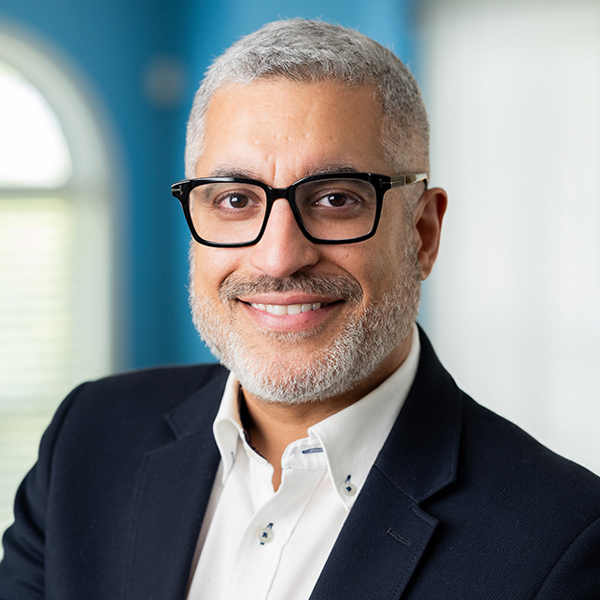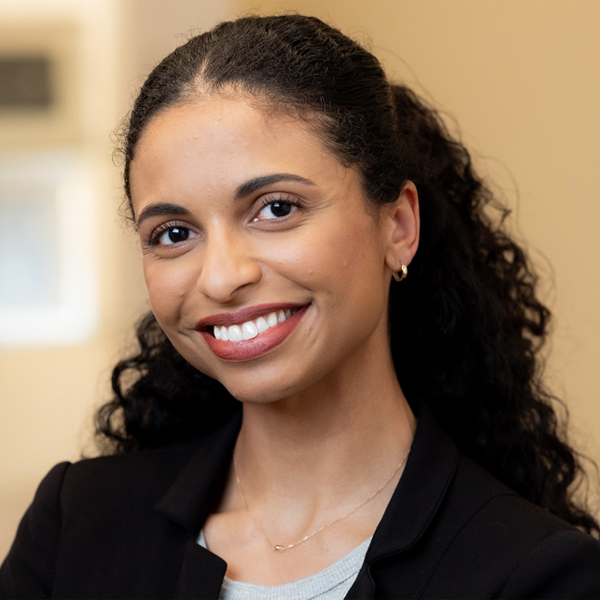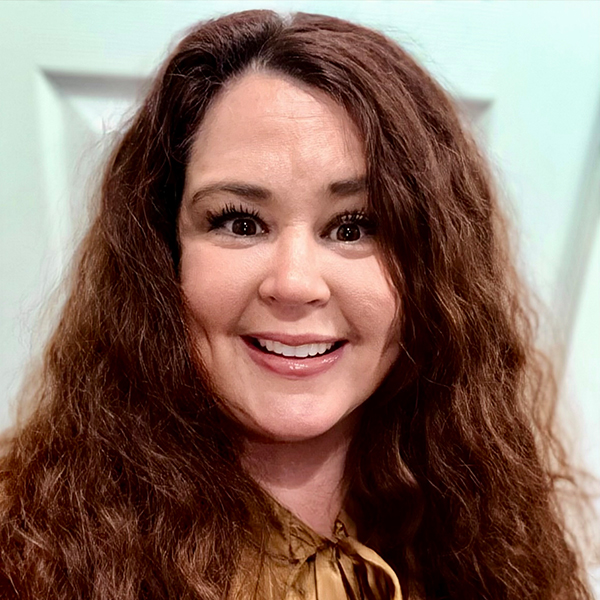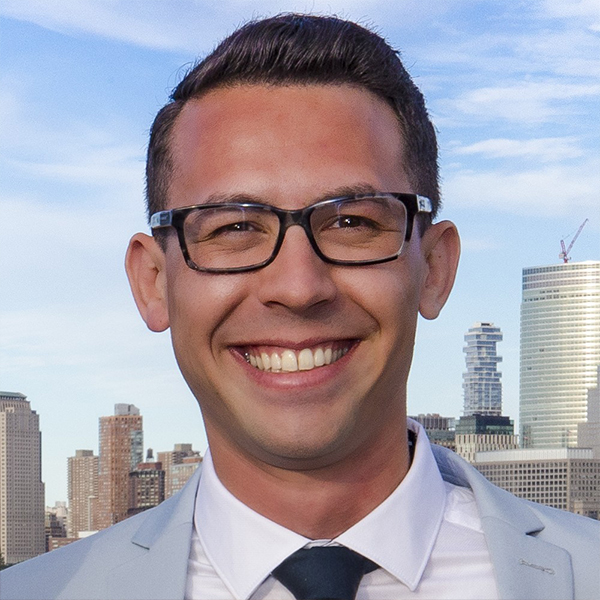
There are many different paths that lead aspiring college students to the Bachelor of Applied Arts and Sciences at Penn: our learning community logs on from all over the world, at different stages of life, with a wide range of academic histories and professional trajectories. So it is no surprise that our graduates take just as many different paths from their college degree to the next chapter of life—and many of them finish their degrees with a desire to keep on learning.
Bachelor of Applied Arts and Sciences alumni pursue graduate studies at prestigious academic institutions around the world. They continue on to advanced professional degrees in business or law, pursue graduate level work at top-tier universities, and explore their creativity in fine arts programs. We spoke to several alumni about the graduate programs they chose and how they prepared to make the transition to graduate school—often while balancing their professional and family lives. This is their advice.
Keep an open mind
You may already have a long-term career plan in place when you begin or continue your undergraduate journey at Penn—or perhaps your goals are more focused on the academic achievement of obtaining your diploma. Regardless, many BAAS students find their college experience transformative; through your coursework, written reflections, and conversations with your peers and instructors, you may discover a new way forward.

Ernesto E. (BAAS ’24) established a successful career before he even considered a bachelor’s degree; he didn’t necessarily see a college education as a tool to enhance his career. But one thing led to another: he began just by taking a few professional writing courses and ended up completing an undergraduate degree as an example to his young children. Even then, “I wasn't sure if I wanted to continue into grad school,” he reflects. “I've been blessed enough that I've been able to work overseas in Europe and here in the US, so I didn't really think it would be something that I would need.”
As he progressed through his undergraduate degree, however, he began to consider continuing his education—looking in particular at a master’s degree in senior healthcare leadership that seemed tailor-made for his high-level corporate career in the pharmaceutical industry. At the same time, he says, that degree appeared to rehash many of the lessons he had already learned from 20 years in the business. “I didn’t want to be in these boardrooms… with everybody having the traditional kind of thinking,” he adds. Instead, Ernesto was accepted to the Master's in Applied Intelligence at Georgetown University, where he focuses on national intelligence and cyber intelligence. “I want to be able to bring in the structured analytic techniques that are taught in these types of intelligence courses, and try to find applicability in the healthcare sector,” he explains.

Fernanda Oliveira (BAAS ’24) initially planned to pursue psychology as a career when she retired from ballet dancing, but her engagement with the dancers' union—meeting labor lawyers, drafting contract language, and helping with negotiations—sparked an interest in the law. “There were a few courses that helped me realize that about myself,” she reflects. For example, in Positive Psychology at Work, she learned to tell a story about herself and her journey toward leadership. “When you actually embrace the work and look at it with an open mind, it can help you situate yourself in your life and where you want to go,” she says. “I remember that being a helpful course personally as well as professionally.” Fernanda was accepted to New York University’s School of Law for fall 2024 and offered a full scholarship as an AnBryce Scholar.
Talk to your instructors and advisors

Alice Russell (BAAS ’24) applied to Penn specifically because she wanted to study creative writing, which wasn’t offered at the college she attended previously. She pursued a degree concentration in Creative Studies, which was “an epiphany,” she says: “Not only do I like writing about writing, but I like writing creatively—and I can do both, and they inform each other.” As Alice got to know her creative writing professors, she realized that there were career paths within the field of creative writing—in teaching as well as employment like her current work as a copywriter—and that she could further specialize by applying to a Master of Fine Arts program.
“I reached out to my professors, and they were so happy to help,” Alice recalls. “I learned about what I should be looking for in programs, what they expect of me, how I could use my Penn classes to prepare myself.” Following her instructors’ advice, Alice applied to a wide range of schools and used her creative writing courses to develop a writing portfolio that she could submit to graduate programs. “If I hadn't had that time and space to really work through it while getting so many of my peers’ eyes on it, so many of my professors’ eyes on it, I don't think it would have been as strong—and I likely would not have gotten into so many places,” she observes.

Katie Conte (BAAS ’25) plans to continue her education in the fall with the Executive Master of Public Administration at Penn. “The professors have been incredibly supportive and generous with their time and guidance,” she says of her application process. “Their letters of recommendation, combined with my academic achievements, including the continuing education award, were instrumental in my acceptance to Penn.”
“Don’t count people out,” adds Fernanda. “Even if you think, ‘Oh, they probably won’t remember me.’ I thought that about one of the teachers I reached out to, and she was more than happy to write me a letter.”
Choose a program that fits your life
Many BAAS students chose an online bachelor’s degree because of the flexibility it offers—whether they are balancing coursework with family responsibilities, professional ties, frequent travel, or other needs that make a traditional college experience difficult to access. For the same reason, many BAAS alumni choose remote, hybrid, or low-residency programs for their graduate work as well.
For her Master of Fine Arts in Creative Writing, Alice chose a low residency MFA program at Queens University in Charlotte. “I ended up going with Queens because it made the most sense for me in my life,” she says. “I couldn't totally uproot myself, so it's been the perfect kind of fit for me.” Her program is almost entirely remote, but meets in person several times a year on the university campus in Charlotte or international residencies in locations such as Argentina, where Alice studied this past summer. “So it's a pretty amazing program,” she laughs. “Penn has definitely set me up for it because I know how to do things remotely.”

Some students are drawn to executive master’s degrees, which are designed specially for mid-career professionals; classes typically meet either online or in person on evenings or weekends, with periodic intensive sessions. The summer after graduation, Scott Sablan (BAAS ’25) started an Executive Master’s in Business Administration from Cornell University. He attends classes in person every other weekend at Cornell Tech campus in New York City, with a week-long residency each term at the university’s main campus in Ithaca. “This program is team-based and sequenced, with all members of a given cohort progressing together,” he explains. “This provides exceptional opportunities for networking and relationship-building with leaders across industries. The Cornell alumni network is second-to-none—everyone responds and is willing to help; already I have both been a helpful contact for and benefitted from the guidance of those within it.”
Similarly, the Executive Master of Public Administration at Penn will allow Katie to continue her education without interrupting her work with the Paramus Adult Training Center day habilitation program through Bergen County Special Services. “I was drawn to the Fels program for its flexibility, which allows me to balance work, school, and life while building a strong professional network,” she says. Coursework for this program takes place mostly online, although Katie is looking forward to “executive weekends” that foster face-to-face connection on campus once a month. “Ultimately, I chose to remain at Penn because it has become more than just a place of study for me,” she adds. “It feels like a second home, and my heart is here.”
Draw on your hard-earned knowledge
Across the board, the students pursuing low residency or hybrid graduate studies felt uniquely prepared for the challenges of remote learning—having recently completed their own rigorous academic training online. “Knowing how to work the Canvas platform actually allowed me to help other students coming into the graduate program from a traditional background in higher-level education, or even people that were coming back to school after 15 or 20 years of industry experience,” says Ernesto. “It helped me bridge to other folks in my classes and start building relationships with them.” Scott had a similar experience: “Relative to my peers, I have the most recent and relevant academic experience, which makes me a standout support for folks returning to school after many years.”
And all of the alums could point to aspects of their degree—either specific coursework or general methodology—that prepared them for the challenges of graduate studies. For Ernesto, it was the professional writing courses that drew him to Penn in the first place; “I would say that that probably has been the single biggest thing that has helped me so far in my first year of grad school,” he notes. Katie concentrated on professional writing and social science in her degree, along with a series of courses focused on social difference and inclusion. “The combination of these disciplines gave me a strong foundation for graduate studies by sharpening my analytical skills, strengthening my ability to communicate effectively, and deepening my understanding of systemic inequities,” she says.
For Scott, the whole college experience was the preparation he needed to excel in business school. “The liberal arts design of my BAAS degree prepared me to ask better questions, offer insights from both the humanities and the sciences, and challenge prototypical business school assumptions around topics ranging from culture to bureaucracy,” he says. “My learning at Penn broadened my capabilities academically, personally, and professionally. I learned that leadership is about building trust, communication is about understanding others, strategy is specific, persuasiveness is an art, logic is empowering, and that well-being matters.”
For more insight into the paths our students take from BAAS to graduate school:
- Watch the interview, “Mastering the Next Step: BAAS Students' Journeys to Graduate Success,” on YouTube, featuring 2024 alumni Alice Russell and Ernesto E.
- Discover Fernanda Oliveira’s journey through “From BAAS to law school: Insights and inspiration” on Penn LPS Online Features.
- Browse a list of academic institutions where BAAS alumni have been admitted to advanced degree programs.
- Explore more Student Stories to see what BAAS students—and the Penn LPS Online certificate students who take classes alongside them—do with their Penn education.
- Want to continue your Penn education? The College of Liberal and Professional Studies offers a wide range of professional master’s degree programs in subjects including applied positive psychology, environmental studies, liberal arts organizational dynamics, public administration, and more.
